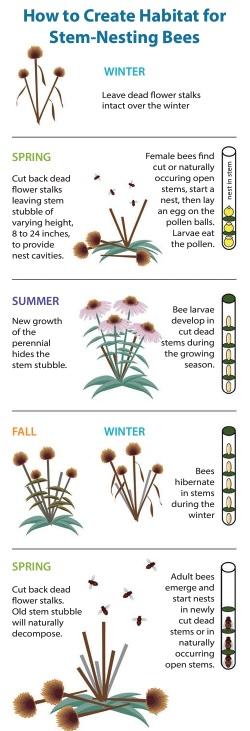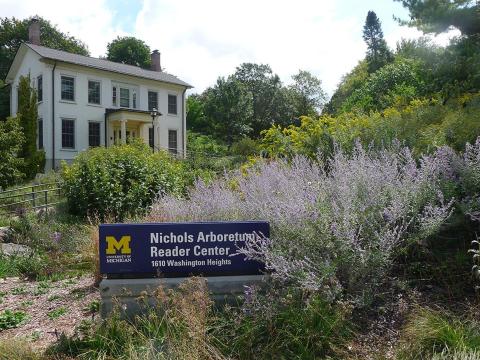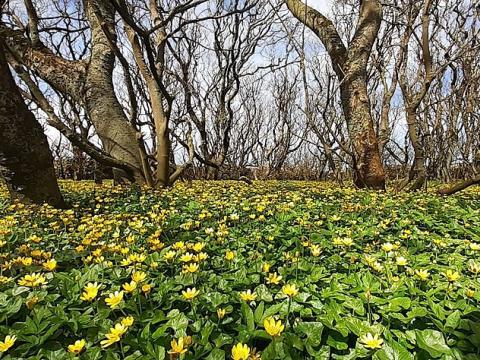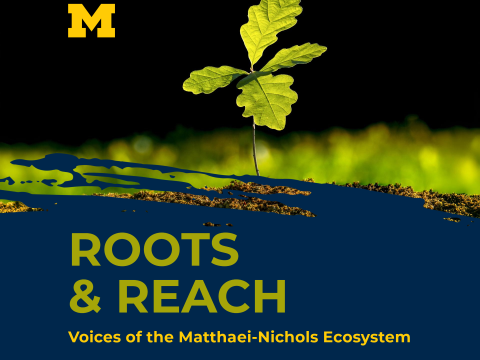
As the seasons shift and many of us start thinking about tidying up our gardens, it’s important to consider how our cleanup practices impact local wildlife. At MBGNA, we believe that fostering ecological resilience begins right in our own backyards.
Calla Butler, MBGNA's native plant horticulturist, offers some invaluable advice for those looking to support bees, butterflies, and other insects while also keeping their gardens healthy.

The Importance of Leaving Leaves
One of the simplest yet most effective ways to help pollinators is to leave leaves in your garden. Leaves provide crucial habitat for overwintering insects, serving as a shelter for many critters that hibernate during the colder months. Instead of bagging them up or sending them off to the landfill, consider raking leaves into your garden beds and leaving them through the winter. This practice not only protects the little creatures that call your garden home but also enriches the soil as the leaves break down.
“The most important thing would be leaves; that’s where all the little critters are,” Calla explains. “They need the integrity of the leaf litter. If you use a lawn mower to mulch the leaves, you just chop them all up, and they lose their habitat.”
Keep Those Stems
In addition to leaving leaves, another key practice is to retain stems from native plants. Calla recommends cutting back plants but leaving 18 to 24 inches of stem intact. These hollow stems provide nesting sites for solitary bees, an important group of pollinators that rely on these spaces for reproduction.
“It’s amazing because, in my own yard, I see finches and other birds picking off seeds,” Calla shares. “Leaving stems not only helps the bees but also supports birds throughout the winter.”
The Takeaway
As you prepare your garden for the upcoming seasons, remember that less can be more. By leaving leaves and stems in place, you're not only enhancing the health of your garden but also contributing to the broader ecosystem.
For those looking for more resources on pollinator conservation, the Xerces Society offers extensive information on best practices and the importance of supporting native species. By adopting these simple practices, we can all play a part in fostering a thriving environment for our pollinators and ensuring a healthier planet for future generations.



